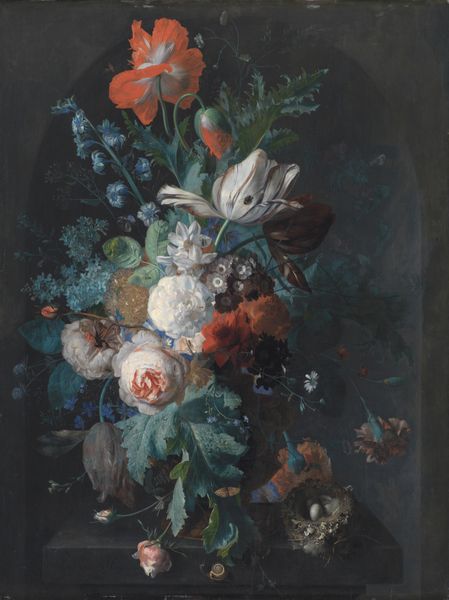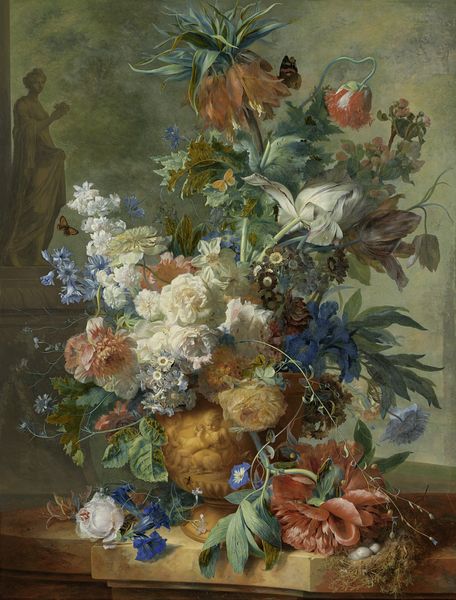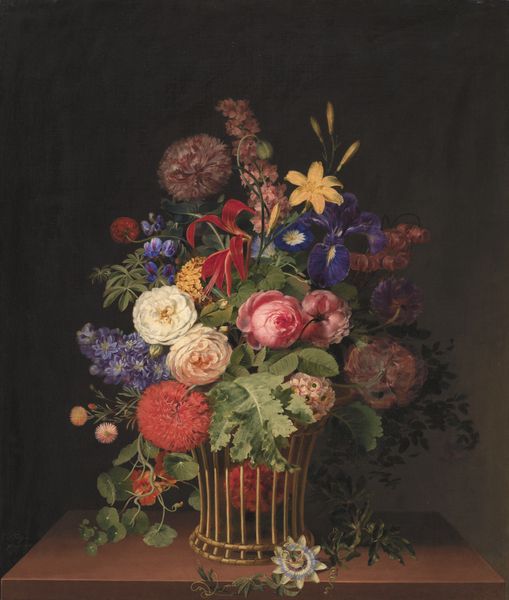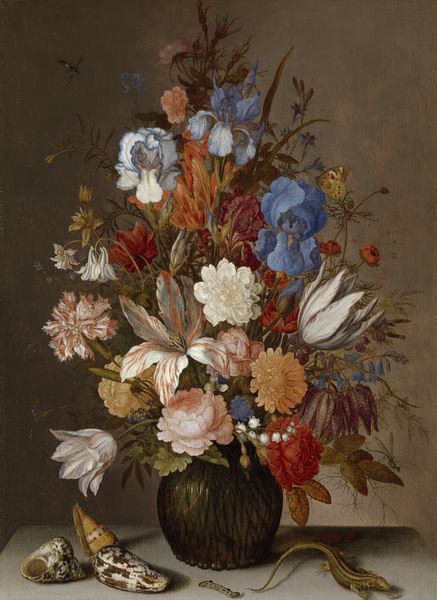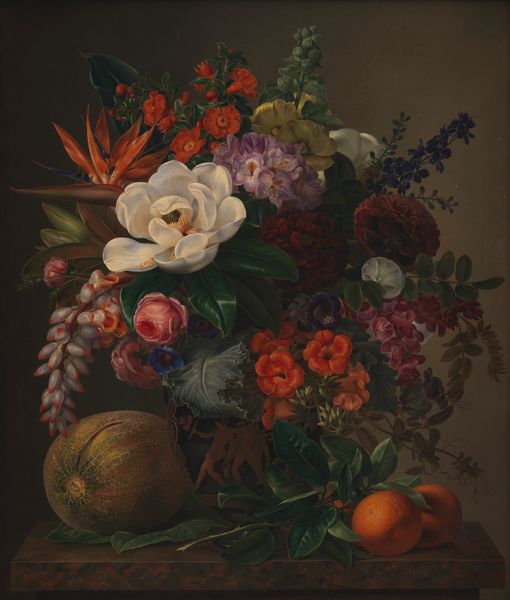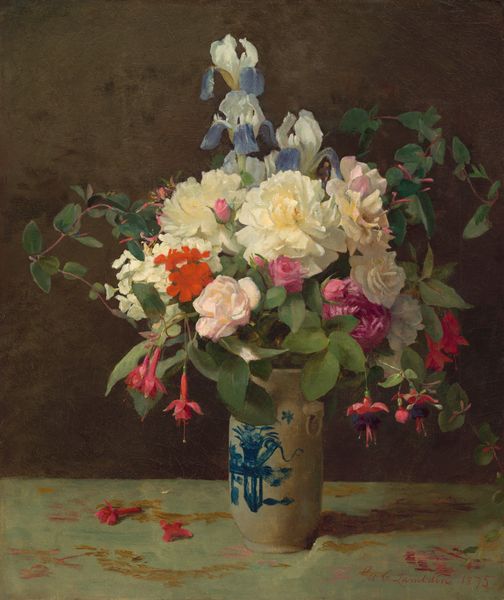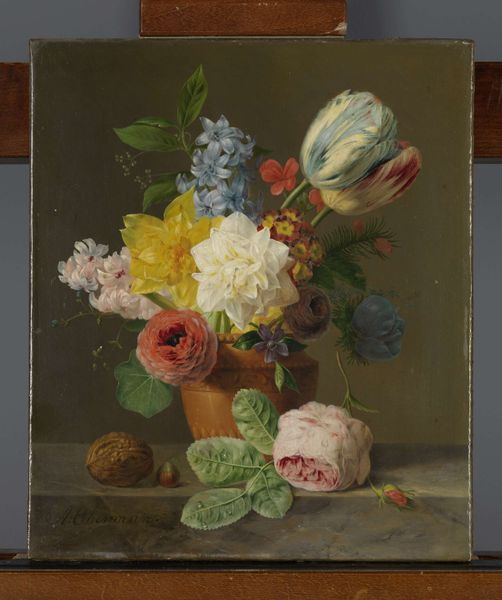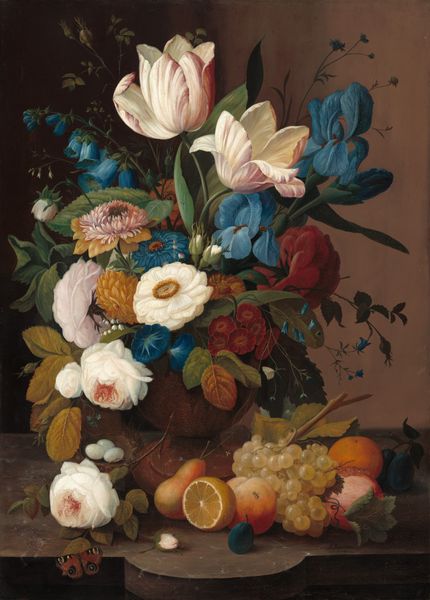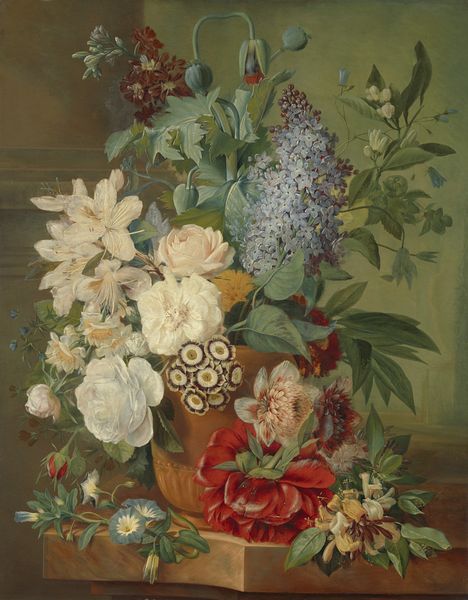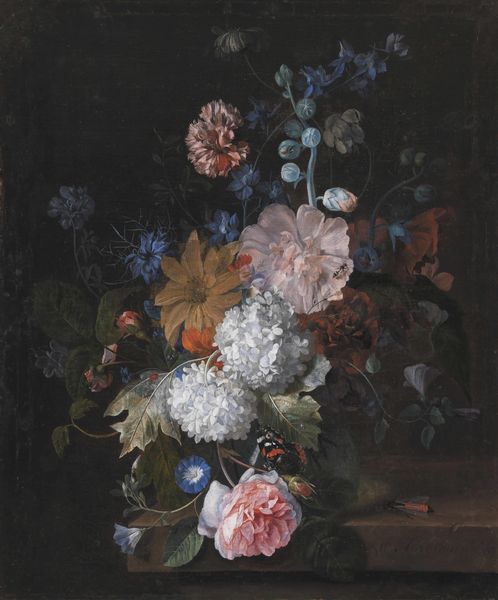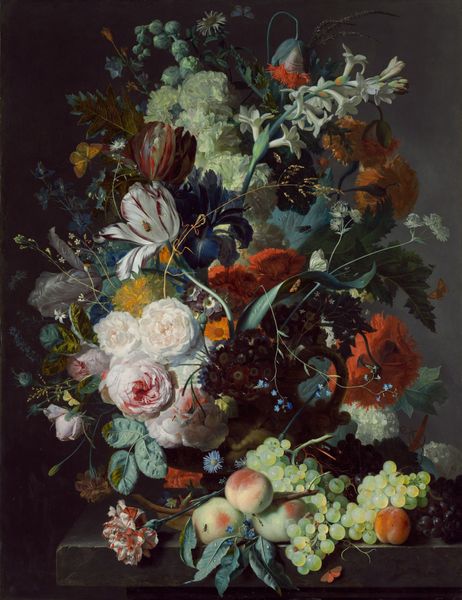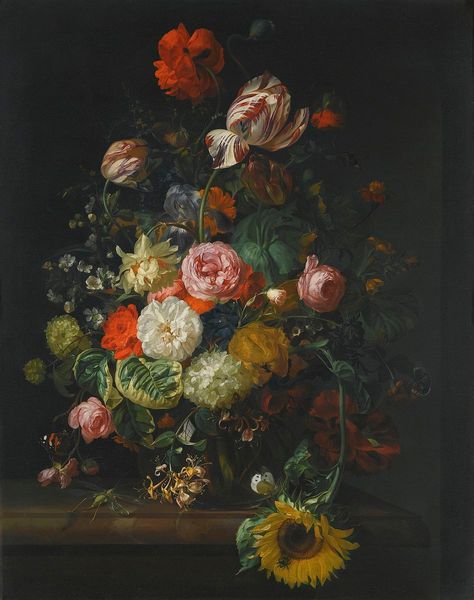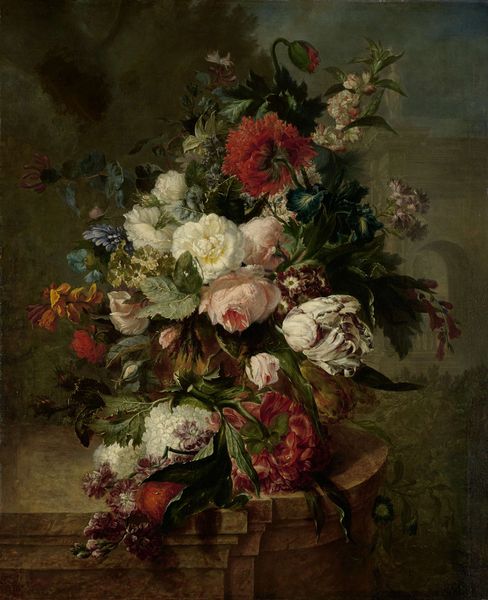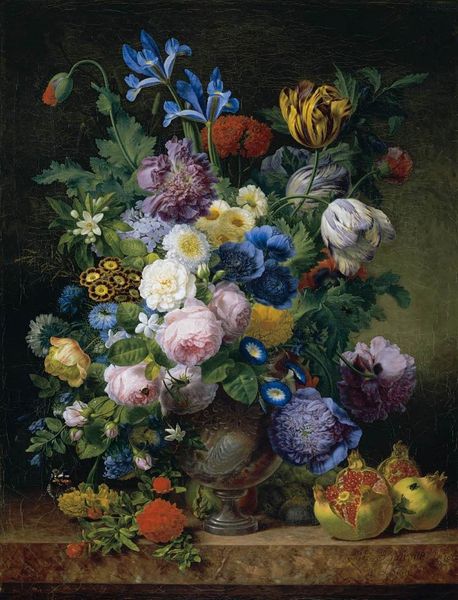
painting, oil-paint
#
portrait
#
baroque
#
dutch-golden-age
#
painting
#
oil-paint
#
oil painting
Dimensions: overall: 79.9 x 60 cm (31 7/16 x 23 5/8 in.) framed: 99.7 x 80.6 x 8.2 cm (39 1/4 x 31 3/4 x 3 1/4 in.)
Copyright: National Gallery of Art: CC0 1.0
Editor: Jan van Huysum’s “Flowers in an Urn,” painted around 1720, is an oil painting just bursting with life. It's incredible how vibrant and almost overwhelming the sheer variety of flowers is. What visual symbolism can we unpack from this cornucopia? Curator: Indeed, it's more than just a beautiful bouquet. Think of the Dutch Golden Age. These flower paintings weren't merely decorative; they were laden with symbolic meaning. What do flowers often represent? Editor: Fleeting beauty? The passage of time? Curator: Precisely. Each flower variety might carry its own distinct symbolism. Roses for love, tulips for wealth, poppies often referenced sleep or even death. The presence of insects, like butterflies, adds another layer – perhaps the transformation and brevity of life. Editor: And then there’s the bird’s nest. Is that referencing rebirth or a domestic idyll? Curator: Both are possible, wouldn't you say? And notice the positioning – slightly precarious, hinting at fragility. It serves as a counterpoint to the opulent floral display. The contrast heightens the awareness of mortality intertwined with beauty. Does the collection feel harmonious, or are there symbolic tensions between different parts? Editor: I hadn’t thought of the tension between them before, but seeing them like that makes each element speak even louder. It definitely reframes it, almost like a visual poem about life and loss! Curator: Exactly! So, we appreciate not just the surface beauty, but the underlying narrative – a meditation on existence, skillfully crafted through a language of flowers and other significant imagery.
Comments
No comments
Be the first to comment and join the conversation on the ultimate creative platform.
